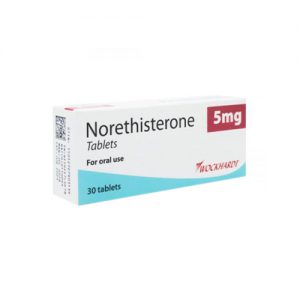Showing 1 products
Pagination
What is period delay?
Period delay refers to delaying of the menstrual period with medical treatment. There are numerous ways to do this. We provide a clinically proven medical treatment to predictably delay your period.
Period Delay can be a useful option for females who desire to control the timing of their menstrual cycles. One method commonly used for period delay is the synthetic hormone norethisterone.
- Work commitment
- Special occasion
- Sporting event
- Holidays
Period delay refers to delaying of the menstrual period with medical treatment. There are numerous ways to do this. We provide a clinically proven medical treatment to predictably delay your period.
Why delay your period?
There are many legitimate reasons to delay the onset of your regular period and alter its timing, these include:
- Going on vacation
- Frequent swimmers
- Participating in sporting events
- Busy work commitments
- For a busy work week
- Big occasions e.g. wedding
- Festivals/pilgrimage
- Long haul flights or long-distance travel
Benefits of Norethisterone for Period Delay.
There are many legitimate reasons to delay the onset of your regular period and alter its timing, these include:
- Event Planning and Special Occasions: Periods can sometimes coincide with important events, such as weddings, vacations, or sporting competitions. By using norethisterone, females can postpone their periods and ensure they can fully enjoy and participate in these occasions without the inconvenience of menstrual bleeding.
- Reduced Pain and Discomfort: Menstrual periods are often accompanied by cramps, bloating, and other discomforts. By delaying their periods with norethisterone, females can experience temporary relief from these symptoms, enabling them to engage in daily activities without the added burden of menstrual discomfort.
- Managing Heavy Bleeding: Some females experience heavy or prolonged bleeding during their periods, which can be disruptive to their daily lives. Norethisterone can be used to delay periods and potentially reduce the intensity and duration of menstrual bleeding, providing individuals with a more manageable flow.
- Medical Conditions and Treatments: Certain medical conditions or treatments may be negatively affected by menstruation. Norethisterone can be beneficial for individuals with conditions such as endometriosis or anemia, as it can help alleviate symptoms or prevent complications associated with heavy bleeding.
There are other good reasons to delay your period and the clearest benefit being better control of when your period starts. Whatever the reasons are we can provide an effective treatment option
How to delay your period
The most well-known medical treatment for delaying period is by taking Norethesterone.
Details of its mechanism of action, how to take it, precautions and side-effects can be found when you click on Norethisterone
Can you get pregnant on period delay tablets?
You will not be protected against pregnancy if you delay your period with period delay medication. You could still become pregnant even when you take Norethisterone and have unprotected sex.
How long can I delay my period for?
Starting 3 days before the period is due, take one tablet three times a day. In the days leading up to the period, they may not work because natural hormone levels will already have begun to drop. You can take these tablets for as long as necessary, but the period usually begins around 2-3 days after ceasing to take them.
Consult your doctor if you want to delay your period for more than 17 days.
How often can I delay my period?
It is only appropriate to take tablets to delay periods occasionally. Consult your own GP if you want more control over the timing of periods. Some methods of contraception also reduce or stop periods significantly, and may be appropriate for you.
Is delaying a period safe?
If you have no risk factors for taking the hormone medication, delaying your period is safe. A woman does not need to bleed every month for medical reasons. Nowadays, many contraceptives allow women to have three or four periods a year.
Do period delay tablets have side effects?
It is possible to experience side effects with all medications.
Most women have no problems when taking norethisterone to delay their period.
Side effects include bloating and fluid retention, which may worsen pre-existing conditions, such as headaches, high blood pressure, and epilepsy. Breast tenderness, loss of libido, and very rarely jaundice (yellowing of the skin due to liver disease) can also occur.
Norethisterone can prolong the cycle, but mild spotting or breakthrough bleeding may occur in about 1 in 10 women.
Can I delay my period if I take other medications?
Norethisterone may interact with other medications, reducing its effectiveness or altering the effectiveness of other drugs.
Please consult your own GP if you are taking any of the medications below:
- Medicines to treat epilepsy (e.g. phenytoin, carbamazepine).
- Antiviral medicines to treat HIV (e.g. ritonavir, nelfinavir, nevirapine, efavirenz).
- Blood thinning medication (e.g. warfarin).
- Herbal preparations containing St John's Wort (Hypericum perforatum).
- Antibiotics for tuberculosis (e.g. rifampicin, rifabutin).
- Other antibiotic medicines (e.g. doxycycline, lymecycline, other tetracyclines, co-trimoxazole).
- Anticancer medicines.
- Ciclosporin (for suppressing the immune system).
- Non-steroidal inflammatory drugs (NSAIDs) for treating pain and inflammation.
- Medicines for high blood pressure.
Understanding Norethisterone for Period Delay
Norethisterone is a synthetic version of the hormone progesterone, which is naturally produced in the female body. It works by mimicking the effects of progesterone, helping to maintain the womb lining and delaying the onset of vaginal bleeding.
Consulting a Healthcare Professional
Before using norethisterone or any other medication for period delay, it is crucial to consult a healthcare professional. They can assess your individual health history, discuss potential risks or contraindications, and provide appropriate guidance on the correct dosage and duration of use.
Alternative to Norethisterone
In addition to norethisterone, there are several alternative methods available for individuals seeking to delay their menstrual periods. This article discusses different options that can be considered for period delay, providing individuals with a range of choices to suit their unique needs and preferences.
- Combined Contraceptive Pills:
Combined contraceptive pills, containing both oestrogen and progesterone, are commonly used for birth control but can also be employed to delay periods. By taking active pills continuously without the hormone-free interval, individuals can postpone their menstrual bleeding. This method is effective and widely used for period delay.
- Progesterone-Only Pills (Mini-Pill):
Progesterone-only pills, also known as mini-pills, are an alternative to combined contraceptive pills. These pills contain only progesterone and are taken continuously without the hormone-free interval. By using mini-pills, individuals can delay or even stop their periods altogether, providing them with greater control over their menstrual cycles.
- Hormonal Intrauterine Devices (IUDs)
Hormonal intrauterine devices, such as the levonorgestrel-releasing IUD, offer a long-term contraceptive option that can also be utilized for period delay. These devices release a small amount of progestin hormone, which can help reduce the intensity and duration of menstrual bleeding or even stop periods altogether for some individuals.
- Extended Cycle Birth Control Pills
Extended cycle birth control pills, such as those taken for 84 days instead of the traditional 21-day cycle, can be used to delay periods. By extending the active pill phase, individuals can reduce the frequency of menstrual bleeding, typically to around four times a year.
- Injectable Progestin
Injectable progestin, such as medroxyprogesterone acetate (Depo-Provera), is a form of hormonal contraception that can be used for period delay. This method involves receiving an injection of progestin every three months, which can lead to a decrease in the frequency and intensity of menstrual bleeding.
- Natural Methods
Some individuals may prefer natural methods for period delay. While the efficacy of these methods may vary, they can be worth exploring. For example, practicing certain relaxation techniques, maintaining a healthy lifestyle, and managing stress levels may help regulate the menstrual cycle and potentially delay periods.
- Consulting a Healthcare Professional
Before considering any method for period delay, it is essential to consult a healthcare professional. They can assess individual health factors, discuss potential risks or contraindications, and provide appropriate guidance on the most suitable method for period delay.
When should I start taking period delay medication, and when will my period start after I stop?
Norethisterone is typically started three days before your period is expected to begin and can delay it for up to 17 days. After you stop taking the medication, your period should start within 2 to 3 days.
Are there any side effects or risks associated with period delay methods?
All period delay methods, like any medication or procedure, have potential side effects and risks associated with their use, which can vary depending on the specific method used and the individual's health profile.
Norethisterone: While this is generally well-tolerated, potential side effects can include bloating, breast tenderness, nausea, headache, and changes in mood. Although rare, there's also a slightly increased risk of developing blood clots, especially in women who have a personal or family history of clotting disorders, those who are overweight, or those who smoke.
Contraceptive Pills: Continuous use of combined oral contraceptive pills to delay periods can lead to breakthrough bleeding or spotting. Other potential side effects mirror those experienced with regular contraceptive pill use, such as headaches, nausea, mood changes, and breast tenderness. Similarly, there's a slightly increased risk of developing blood clots.
Hormonal IUDs: Some women might experience side effects like spotting between periods, irregular periods, or no periods at all. Other potential side effects include headaches, nausea, breast tenderness, and mood changes. There may be a risk of infection during insertion and, in rare cases, the IUD can perforate the womb.
Contraceptive Injections, Patches, and Implants: These methods might cause irregular bleeding, weight gain, mood changes, headaches, and acne.
It's important to note that most side effects are likely to improve within a few months once the body adjusts to the new hormone levels. However, if you experience persistent side effects, it's advisable to contact your healthcare provider.
It's also crucial to remember that delaying your period doesn't provide protection against sexually transmitted infections or unintended pregnancies unless you're using a contraceptive method such as the pill or an IUD. Always discuss these risks and considerations with a healthcare provider when considering period delay methods.
Should I consult a healthcare professional before trying to delay my period?
Yes, it's vital to consult with a healthcare professional before starting any method of period delay. They can provide accurate advice based on your specific health circumstances and discuss any potential side effects with you.
What if I want to delay my period for a longer time, or reduce their frequency?
If you're looking to delay your period for a longer duration, or even reduce the frequency of your periods, certain long-term solutions are available:
- Continuous or Extended-Cycle Contraceptive Pills: These types of oral contraceptives involve taking active hormone pills for a longer period of time, reducing the frequency of your periods. For instance, extended-cycle pills typically come in 13-week packs where you take active pills for 12 weeks and then take a week of inactive pills during which you would menstruate. Some types of continuous cycle pills may eliminate periods entirely by taking an active pill every day.
- Hormonal IUDs: Hormonal IUDs like Mirena, can reduce the frequency of periods, and for some women, can even stop them altogether. This is because they release a steady dose of progesterone, which thins the lining of the uterus and can suppress ovulation.
- Contraceptive Injections, Patches, and Implants: Progesterone-releasing contraceptive methods, such as the Depo-Provera injection or Nexplanon implant, can reduce the frequency of periods and in some cases may stop them altogether.
- Endometrial Ablation: For women who are certain they do not wish to have children in the future, endometrial ablation is a procedure that destroys the lining of the uterus to significantly reduce menstrual flow. In some cases, it may stop periods entirely.
- It's important to discuss these options thoroughly with your healthcare provider, as each method has its own potential side effects, risks, and considerations. Furthermore, some of these methods may affect fertility either temporarily or permanently, so it's crucial to take your future family planning desires into account when choosing a method.




We’re here to help.
Our friendly team is available to help Monday to Friday 9:00am - 5:00pm.
If you need urgent assistance, do not use this service. Call 111, or in an emergency call 999.

